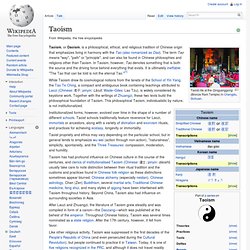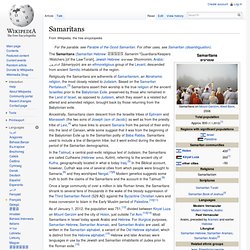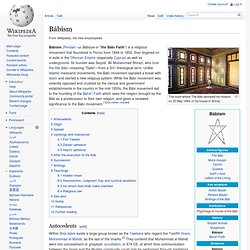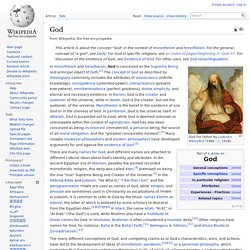

Christianity. Christianity is an Abrahamic religion that began as a Jewish sect in the mid-1st century.[9][10] Originating in the Levant region of the Middle East, it quickly spread to Syria, Mesopotamia, Asia Minor and Egypt. It grew in size and influence over a few centuries, and by the end of the 4th century had become the official state church of the Roman Empire, replacing other forms of religion practiced under Roman rule.[11] During the Middle Ages, most of the remainder of Europe was Christianized, and adherents were gained in the Middle East, North Africa, Ethiopia and parts of India.[12][13] Following the Age of Discovery, Christianity spread to the Americas, Australasia, sub-Saharan Africa, and the rest of the world through missionary work and colonization.[14][15][16] Christianity has played a prominent role in the shaping of Western civilization.[17][18][19][20][21] Beliefs Creeds Its main points include: Ten Commandments These are quotes from Deuteronomy 6:4 and Leviticus 19:18.
Taoism. Taoist rite at the Qingyanggong (Bronze Ram Temple) in Chengdu, Sichuan.

Taoism, or Daoism, is a philosophical, ethical, and religious tradition of Chinese origin that emphasizes living in harmony with the Tao (also romanized as Dao). The term Tao means "way", "path" or "principle", and can also be found in Chinese philosophies and religions other than Taoism. In Taoism, however, Tao denotes something that is both the source and the driving force behind everything that exists. It is ultimately ineffable: "The Tao that can be told is not the eternal Tao. While Taoism drew its cosmological notions from the tenets of the School of Yin Yang, the Tao Te Ching, a compact and ambiguous book containing teachings attributed to Laozi (Chinese: 老子; pinyin: Lǎozǐ; Wade–Giles: Lao Tzu), is widely considered its keystone work. Samaritanism. The Samaritans (Samaritan Hebrew: ࠔࠌࠓࠉࠌ Samerim "Guardians/Keepers/Watchers [of the Law/Torah], Jewish Hebrew: שומרונים Shomronim, Arabic: السامريون Sāmeriyyūn) are an ethnoreligious group of the Levant, descended from ancient Semitic inhabitants of the region.

Religiously the Samaritans are adherents of Samaritanism, an Abrahamic religion, the most closely related to Judaism. Based on the Samaritan Pentateuch,[3] Samaritans assert their worship is the true religion of the ancient Israelites prior to the Babylonian Exile, preserved by those who remained in the Land of Israel, as opposed to Judaism, which they assert is a related but altered and amended religion, brought back by those returning from the Babylonian exile. As of January 1, 2012, the population was 751,[12] divided between Kiryat Luza on Mount Gerizim and the city of Holon, just outside Tel Aviv.[13][14] Most Samaritans in Israel today speak Arabic and Hebrew. Etymology[edit] History and origin[edit] Samaritan sources[edit]
Bábism. The room where The Báb declared his mission on 23 May 1844, in his house in Shiraz.

Bábism (Persian: بابیه Babiyye or "the Bábí Faith") is a religious movement that flourished in Persia from 1844 to 1852, then lingered on in exile in the Ottoman Empire (especially Cyprus) as well as underground. Its founder was Sayyid `Alí Muhammad Shirazi, who took the title Báb—meaning "Gate"—from a Shi'i theological term.
Unlike Islamic messianic movements, the Bábí movement signaled a break with Islam and started a new religious system. God.com. Wiki God. In monotheism and henotheism, God is conceived as the Supreme Being and principal object of faith.[1] The concept of God as described by theologians commonly includes the attributes of omniscience (infinite knowledge), omnipotence (unlimited power), omnipresence (present everywhere), omnibenevolence (perfect goodness), divine simplicity, and eternal and necessary existence.

In theism, God is the creator and sustainer of the universe, while in deism, God is the creator, but not the sustainer, of the universe. Monotheism is the belief in the existence of one God or in the oneness of God. In pantheism, God is the universe itself. In atheism, God is purported not to exist, while God is deemed unknown or unknowable within the context of agnosticism. There are many names for God, and different names are attached to different cultural ideas about God's identity and attributes. Etymology and usage General conceptions Oneness Main articles: Monotheism and Henotheism Theism, deism and pantheism St.